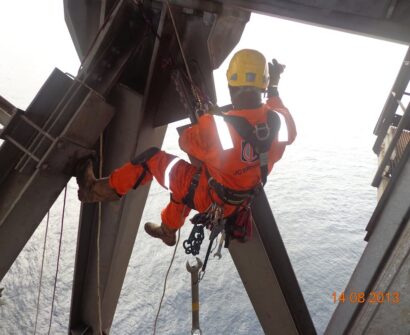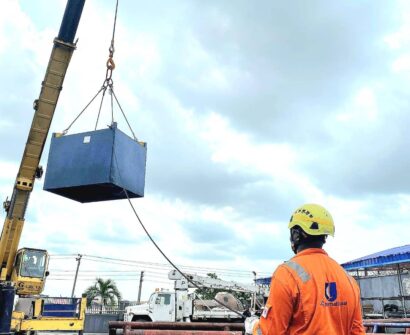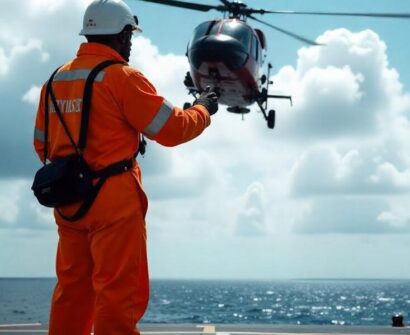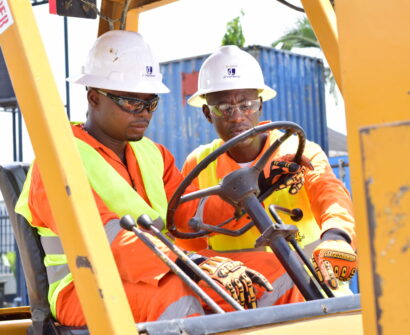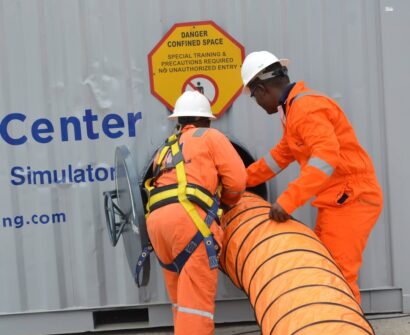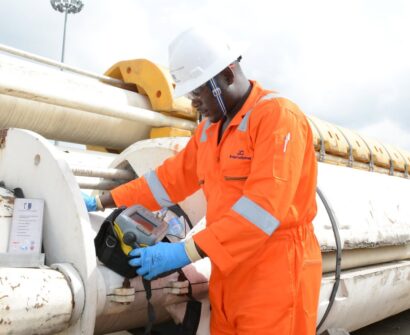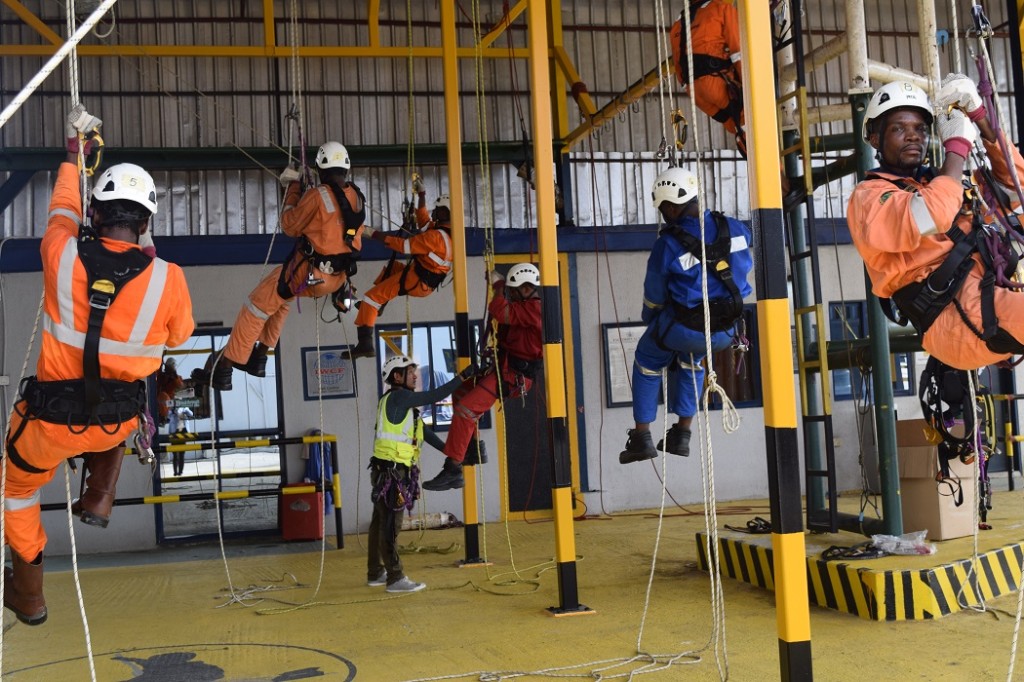
Working at height is one of the most challenging and high-risk tasks in any industry. From offshore platforms to construction towers and industrial plants, safety and efficiency are critical. This is where Rope Access comes in, a safe, versatile, and cost-effective method of gaining access to difficult-to-reach areas using ropes and specialized equipment.
At JC International, we provide globally recognized Rope Access Training in Nigeria, designed to equip participants with the technical competence and safety awareness required to work at height under IRATA (Industrial Rope Access Trade Association) standards.
What Is Rope Access?
Rope Access is a work positioning system that allows technicians to carry out inspections, maintenance, repairs, and other tasks in high or confined areas using a combination of ropes, harnesses, and mechanical devices.
It is widely used in offshore oil and gas, construction, telecommunication, and power industries because it minimizes setup time, reduces costs, and enhances safety.
Benefits of Rope Access Training
- Enhanced Safety: Learn globally approved height safety techniques.
- Cost-Effective: Reduce the need for scaffolding and heavy lifting equipment.
- Versatility: Ideal for inspection, painting, welding, cleaning, and maintenance tasks.
- Global Recognition: IRATA certification is accepted worldwide, opening doors to offshore and international opportunities.
- Career Growth: Certified rope access technicians are in high demand in the energy and construction sectors.
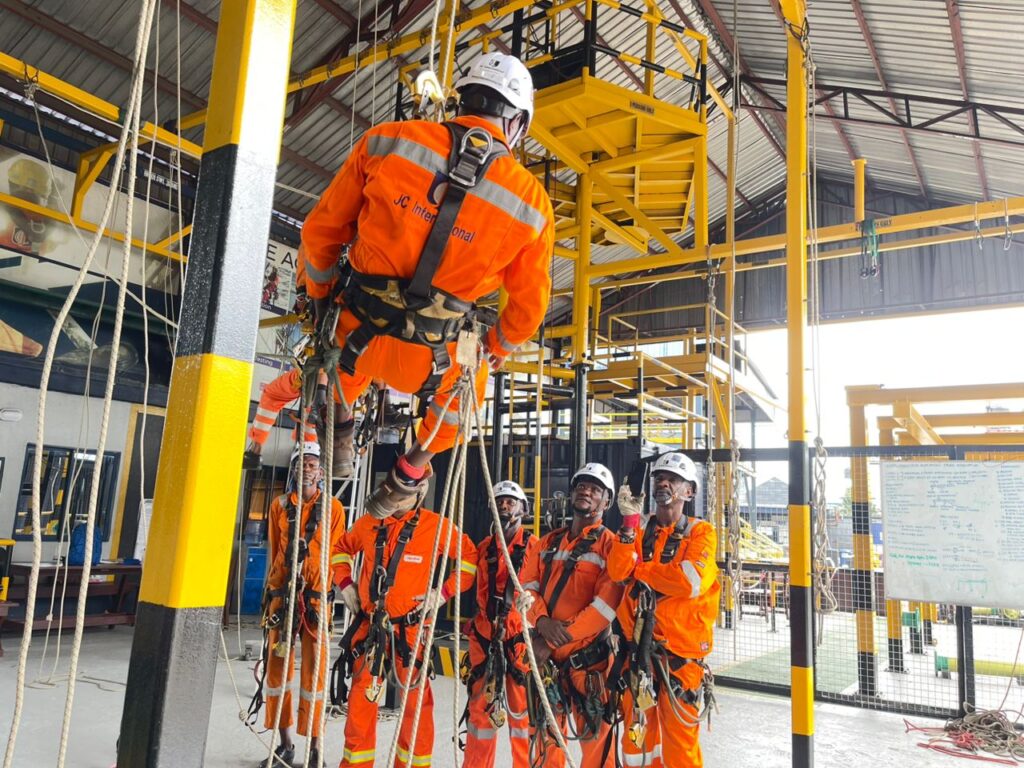
Levels of IRATA Rope Access Training
Rope Access training is divided into three levels under the IRATA certification framework:
IRATA Level 1
This is the entry level for beginners. Trainees learn fundamental climbing techniques, rope maneuvers, equipment inspection, and basic rescue procedures. This is ideal for Individuals new to rope access or with little experience working at height.
IRATA Level 2
This level focuses on advanced rigging techniques, rescue operations, and team supervision. To qualify for IRATA Level 2, one must have at least 1,000 logged hours and 12 months of experience as a Level 1 technician.
IRATA Level 3
The highest level, designed for technicians who will plan, manage, and supervise rope access operations. The requirement to do level 3 is have at least 1,000 logged hours and 12 months of experience as a Level 2 technician, plus a strong understanding of risk assessment and rescue coordination.
Training Requirements
Before enrolling for Rope Access Training in Nigeria, participants should:
- Be at least 18 years old.
- Be physically and medically fit to work at height.
- Provide valid identification (passport, national ID, or company ID).
- Have a good understanding of English, as training involves both theory and practical sessions.
All participants must also complete medical and fitness assessments to ensure they can safely handle the demands of rope access work.
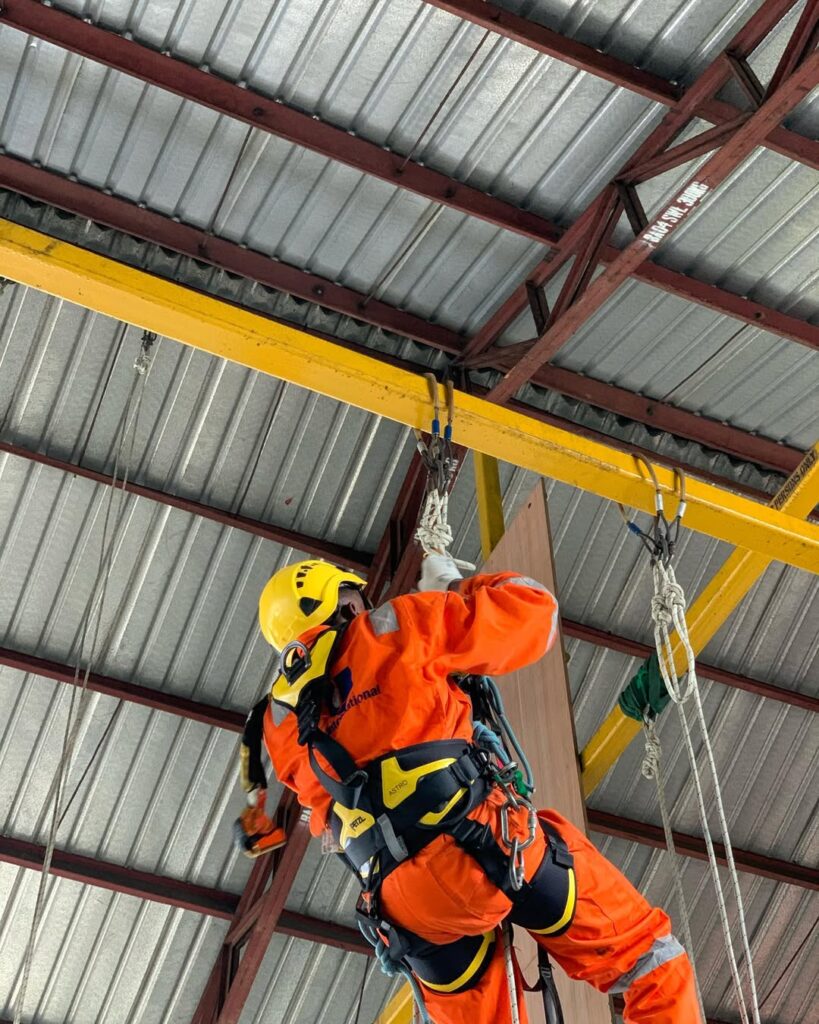
Why Choose JC International
- IRATA-certified instructors with years of offshore and onshore experience
- Modern training facilities in Port Harcourt and Lagos
- Hands-on practical sessions that mirror real work scenarios
- Globally recognized certificates that boost your employability
Who Should Attend?
- Rope Access Technicians
- Offshore and Onshore Maintenance Teams
- NDT Inspectors
- Construction Workers
- Riggers and Safety Officers
- Anyone interested in building a career in industrial height work
Get Certified. Get Hired. Stay Safe.
Whether you’re just starting or advancing to the next level, JC International’s IRATA Rope Access Training gives you the skills and certification to work safely and confidently at height.
Contact us todayto register for your Rope Access course or learn more about upcoming training schedules


